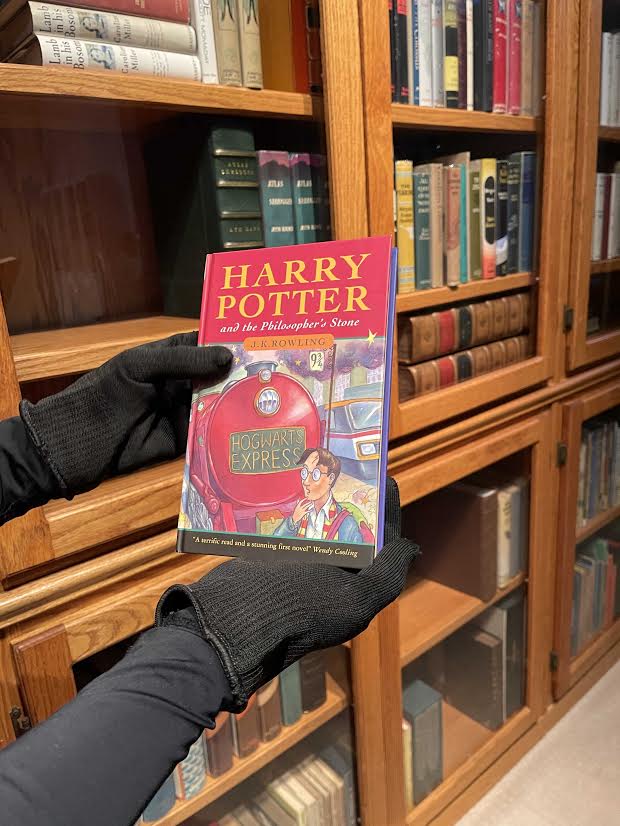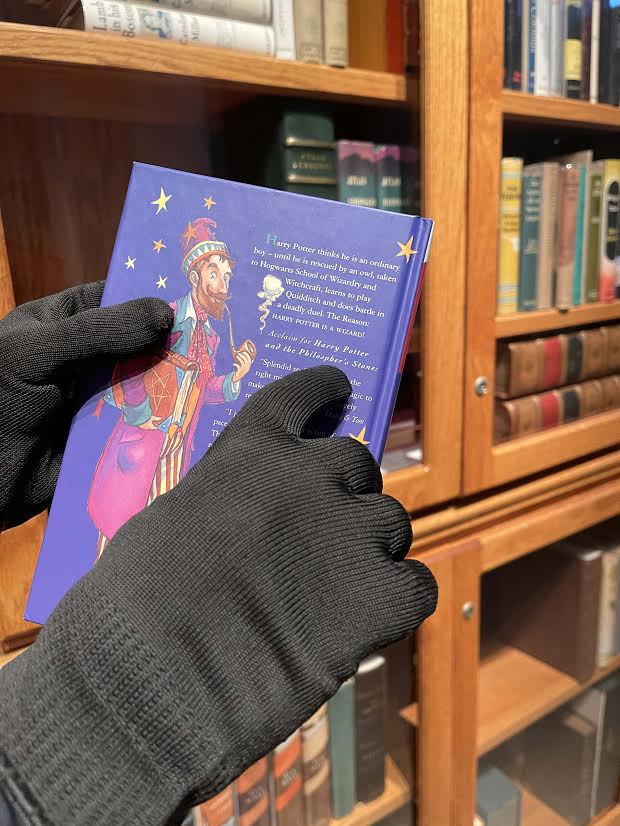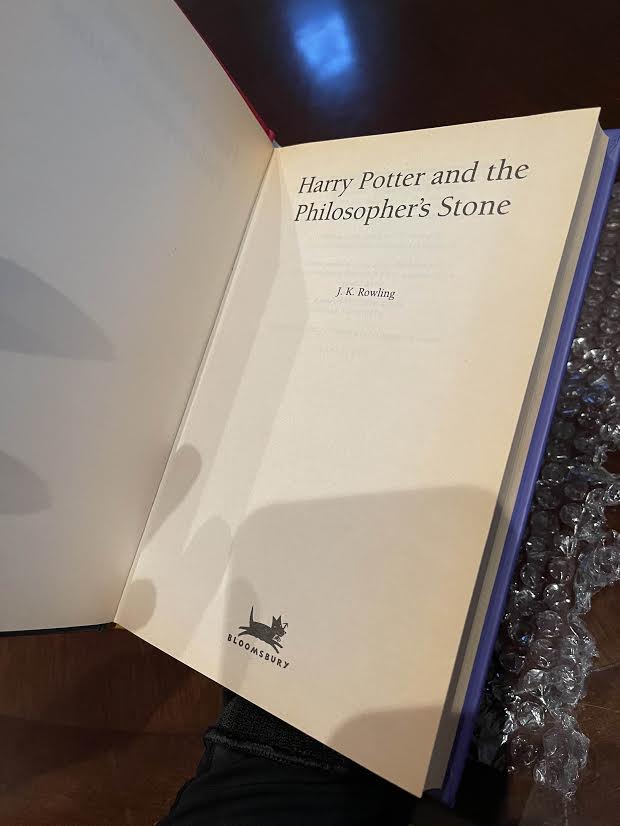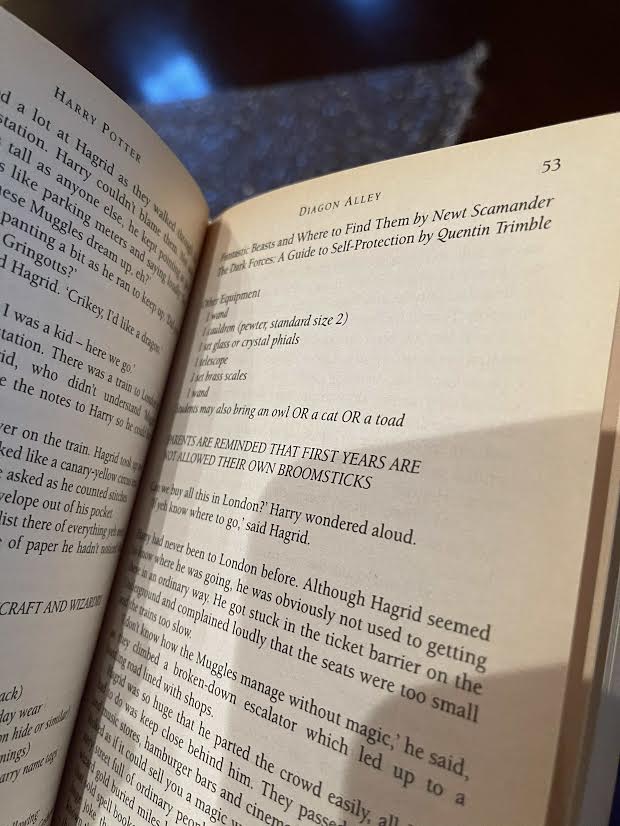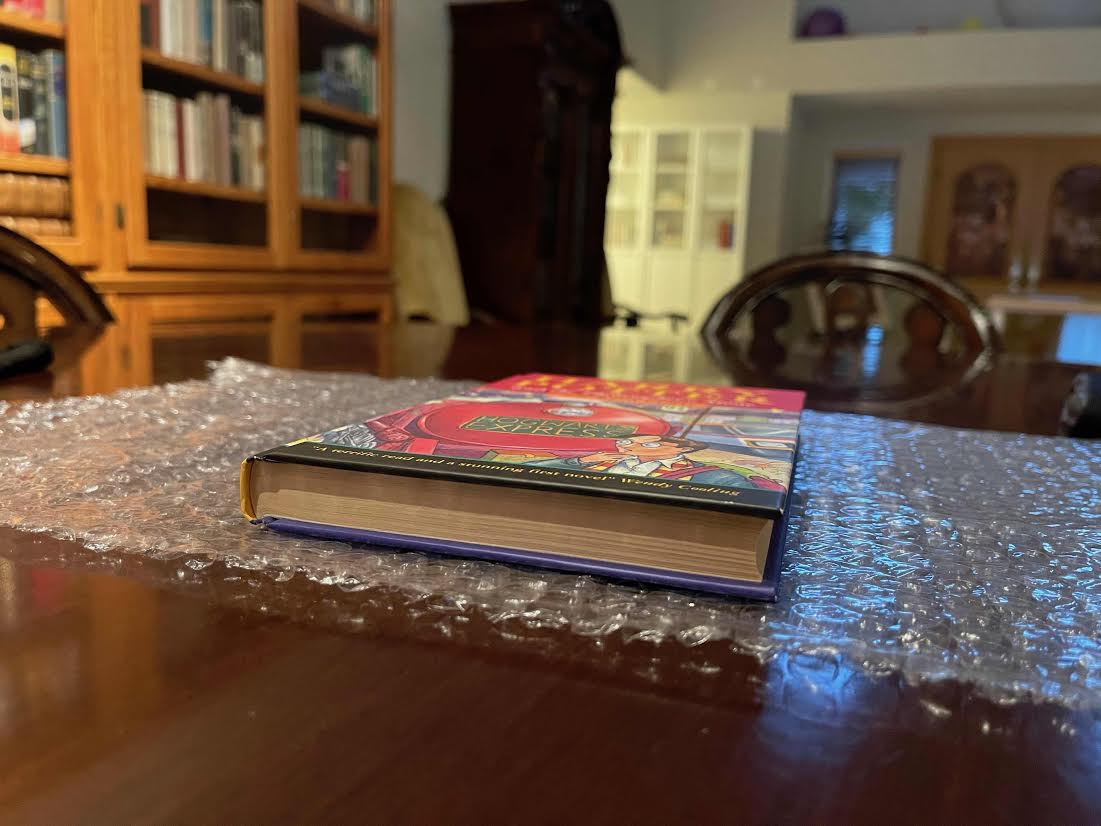Mary Wojcicki: My name is Mary Wojcicki. I am the senior journalist on [the] MuggleNet News Team, and I am here with Jeremy Padawer [pronounces it as Pada-ver]. What is your exact title? Do you want to introduce yourself?
Jeremy Padawer: Sure. My name is Jeremy Padawer [pronounces it as Pa-dower]...
Mary: I apologize for mispronouncing your name because I get that all the time with my surname!
Jeremy: No worries! Honestly, the way my name reads, you read it perfectly. Somewhere in the late 19th century, they came to Ellis Island and probably mispronounced the name and it became what it became. [laughs] I'm Jeremy Padawer. I'm a toy company owner. Today I'm a partner at Jazwares and before I was the co-owner of Wicked Cool Toys before we sold the company. For the last 20 years, I've been making toys and collectibles including, currently, the global partner for Pokémon, Fortnite, Roblox, Peppa Pig, Cabbage Patch Kids, CoComelon, Blippi, Micro Machines, and so-on and so-on. I'm also a big-time collector. I love collecting things that I understand, brands that I have a passion for, and Harry Potter holds a special place in my heart, so I was very excited to both collect and invest in the Harry Potter brand.
Mary: Just for some background for our readers, you had mentioned in your email that this book was originally sold at auction by Heritage Auctions in 2017 for $83,000.
Jeremy: Yes.
Mary: You then bought that as of this year or last year?
Jeremy: I just purchased it about two weeks ago.
Mary: So [you] just purchased it this year for $193,000, is that correct?
Jeremy: That's accurate, yes! [laughs]
Mary: I guess my first question is, how did you find out that this book was coming up for sale again?
Jeremy: You know how they say, "Dedicate 10,000 hours to something and you become good at it"? I've dedicated probably 50,000 hours in my life, professionally and personally - and maybe more - to being really good at my job, which is to find the next big thing in toys and collectibles, and really good at my hobby and my investing, which is to find things that I believe will accelerate in value significantly over time. I’ve been watching the Harry Potter first-edition first print for many, many years, and I watched it escalate in value. And when it came up on the Heritage Auctions site about three-and-a-half years ago, it had an initial estimate of $20,000. Which, at the time was pretty reasonable, and it sold for four-times [the] estimate, and it sold to a professional book-dealer called Quintessential Rare Books. So I started becoming interested in investing in Harry Potter quite recently after investing quite a bit in Pokémon and some of the other brands that I love as well. I looked around, and my objective wasn’t necessarily to find the most pristine book in the world. My objective was just to have a piece of this wonderful brand and to own a first-print, first-edition hardback book. And as I was doing my due diligence, I noticed that one copy had very recently sold on Rally, which is a fractional share company, for $135,000, and it was written in and the binding was a little rough. From a grading standpoint, it was definitely not the highest-graded book. Looking around even further, I was noting that books last year that were selling for [$80,000] to $100,000 were also in similar condition. When I found this book, listed approximately where I paid, I knew that there were other transactions on lesser-conditioned copies, and I felt very comfortable in invested a tremendous amount of money like $193,000. But it all goes to my philosophy in life, which is that in life, you have to invest in your passions, even a little bit. In managing my own portfolio, I’m really passionate about content, and I’m really passionate about certain brands - Harry Potter being one that was the first book that I read with my wife twenty years ago. Out loud. I don’t know if we ever did that again. We read the whole series together. I've watched every movie. I was invited to the movies when I worked at Mattel. [I] attended the first movie, when it came out, with Mattel. The first job that I attempted to get in the toy industry was on the Harry Potter brand in 2000. And I didn’t get the job. And it was a bummer because I really liked the content so much. But it’s a big full-circle moment for me because - 21 years later - I’ve done very well, and I do have the opportunity to choose what to do with the money that I’ve made in toys and collectibles. And so what do I do? I put it right back in things that I love, in toys and collectibles.
Mary: I feel that's something that we at MuggleNet can definitely relate to. Doing something that we're passionate about and being so involved in the fandom and things like that. So I feel like that's something that's also going to resonate very well with our readers and the folks who interact with us on social media.
Jeremy: Well, I'm glad to hear that because I think that what's happening is [that] the generation that's coming up now and maybe the generation after that, so kids who are between 10 and 20 and then adults who are between 20 and 30, have a different experience in life with following passion. I think the world today enables people to follow their passions in a way that you couldn’t do for someone my age. My hair is a little bit like Snape's, it's long and it's naturally dark, so you may not realize how old I am. I'm 47, which is shocking even to me. The point is that a lot of people my age were not raised around a concept that they could follow their passions and have a very successful life. Whereas, today, between social influencing and Etsy and eBay stores and writing - independent writing, independent art - and everything that’s out there that supports one’s personal passions, you really can become the things that you love in a way that you couldn’t necessarily before, and it really makes me happy. So as an older person who has had success in an area that I was passionate about, I just want to confirm that [it] can last your whole lifetime. And that's really the message that I would like to help relay to MuggleNet and to anyone who has affinities in life.
Mary: Yeah! So I guess on that note, for anyone who's looking to use toys or similar memorabilia as a way to get into investing, or maybe people who already have a collection of Harry Potter memorabilia that they're thinking about maybe using that as an investment down the line, what would be your advice in that regard?
Jeremy: So my advice is: whatever it is you do in life, you diversify. If you love Harry Potter more than any other brand, maybe that's your biggest level of investing, because obviously, it may have happened naturally. It may be that you're collecting things over the years that just happen to become more valuable. But just like anything, make sure that if you love collectibles, make sure that you diversify in your collectible portfolio. You might also love Pokémon. You might also love [Dragon Ball Z]. You might also love sports memorabilia. You might also love one of a hundred different ways where there are other collectible and value systems out there. And if you love Harry Potter more than any of them, maybe Harry Potter is where you have your biggest investment. But that's always been the way to treat anything that has value. For instance, I also invest in real estate and in equity; in companies, and stocks and bonds. But none of those things are really fun, or none of those things really give me emotional enjoyment other than, perhaps, real estate, because you can tangibly enjoy that. But I can tell you, all of this has come to me because I was passionate about toys, I was passionate about brands, and I lived a life that was true to that passion.
Mary: I can also see behind you - just as a note - you've got some Pikachu and some Cabbage Patch. I don't know what all. Looks like some sort of figurines as well, up there. I can't tell if those are Funkos or what those are. I can't see from here, but I can safely say that I think you've diversified your interests in terms of fandoms there.
Jeremy: A lot of the stuff behind me is stuff that I've made or manufactured. Because personally, both owning a toy company and prior to that, working for major toy companies like Mattel, I've really had the amazing opportunity in my life to create a lot of great product. But I've never, ever created anything within publishing. In fact, the Harry Potter first-edition, first-print book is the first book and the only book I've ever invested in. So in some ways, I'm also following my own philosophy which is to expand my horizons a bit. I do think that this will have an impact on values within [the] Harry Potter universe, and I do believe that a lot of people don't care about that. And that's totally acceptable if you've got things because you love them and you don't care about the underlying value. The only thing that I might say is "just try to keep them in good condition." Because maybe one day a grandchild will receive tremendous benefits from these things. But for those [who] do care, congratulations, because I really do believe that over the next ten years, you're going to see [a] tremendous increase in the value of Harry Potter memorabilia and merchandise.
Mary: Do you plan to invest more in Harry Potter memorabilia? Is that something that you plan on doing in terms of possibly buying more rare books of different varieties or things like that?
Jeremy: Yeah! Knowing me, the answer is yes because I just can't help myself. And because if I have an affinity towards something I start down a path and then I doggedly continue down that path. It would be really cool to continue down the path of first -print, first-edition throughout the entire series. I know that there are other antiquities and interesting opportunities within that world, even beyond the traditional Harry Potter series, with the author. However, I will say that I also recognize that, just because I have the means to do it, [that] doesn’t mean that I necessarily should, because I think there'[re] so many people out there [who] have even more passion than I do, and I really want people to explore their own passions and have the access to these items too. The good news is there's not just one, so if I do get my hands on some things it doesn't really change the market that much. But this first-edition, first print, like I said, it wasn't my objective to go find the finest copy in the world, but I couldn't say no when it fell into my lap.
Mary: And I think that's something that I've noticed with a lot of stories around rare Harry Potter books going up for auction. We've had a few instances now of rare Harry Potter books going up for auction, particularly in the U.K., and I think that's something that is interesting to me, is to read what the previous owners have had to say about [it]. They found this book when they were cleaning the house to move or whatever, and then they realized that it was actually something of value. I feel like there's that element of it as well, but I think you touched on a really good point. I think there are some people who are probably going to read this and go, "Oh, that's outrageous that this guy would spend almost $200,000 on a Harry Potter book..."
Jeremy: And I respect them very much, because the truth is, there are some people who are very practical, and they look at a piece of cardboard as a piece of cardboard. And there are other people who look at that piece of cardboard and they see a five million dollar baseball card. And there are some people [who] look at a piece of fabric that has stuffing in it and they say, "That's just a stuffed animal," and then others look at it and they say, "Wow, that's an early Ty Beanie Baby Princess Diana that's worth thousands and thousands of dollars." I understand both sides because I'm an emotive person, and I respect people who have a different opinion than me. The only thing that I would say is that markets are only about the personalities that are in them. I've watched this market evolve over some time, and I'm really quite good at identifying indicators of what makes a market grow and tick. One thing that I can tell you about Harry Potter is that the original - and I was older - but the people that were truly inspired by Harry Potter in 2000, '99, were between the ages of 6 and 16. Let's just say, there were some older, some younger, for sure. But the core age, and 20 years later, these people are 26 to 36 years old, and what I can tell you about life is that you don't have access or control or influence over money or capital 26 to 36 the way you do when you're 46 or 56. And the reason why I'm saying all of this is because 10 to 20 years from now, I think that these things, these rare elements, these collectible items, will be worth so much more money because the people [who] desire them aren't just a random 47-year-old guy [who] owns a toy company and loves brands and collectibles, but will be the norm. And I think that it's a beautiful thing, and I hope that people pass those passions on to their children, because I do believe that we're headed to a better place when we embrace the things that we're passionate about.
Mary: And I think that's so true, that there is definitely a sentimental value attached to certain things. I know you talked about the Princess Diana Beanie Baby, and from that standpoint, there was such a thought process back 20-30 years ago now that Beanie Babies were going to be the hot commodity investment. And some of them have panned out to be - like the Princess Diana one - some not so much. I think that's also something to keep in mind, is that as a fandom there were a lot of people who thought that the fandom was just going to die with the end of the film series. There was, for a while, a lull that happened and there were a lot of questions being thrown around of, "Okay, what do we do now? It's the end of this era of Harry Potter, and we've never really seen a global franchise take off like this." I think you make a really good point in that the Harry Potter generation, if you will, is still going to hold that sentimental value for that merchandise and those properties in a way that older generations might not necessarily have.
Jeremy: There's no question. And I can say with almost certainty that, as of today, the Harry Potter generation hasn’t taken over the world yet, but soon you will. And I think that that’s a good thing, and I actually look forward to it. I look forward to the people who are 26 to 36 years old, who are very enlightened and have seen a lot of things - and now with COVID, you’ve seen even more. But give it ten years, and I think that what people do with their recreational time, what they do with their investing, what they do with their passions, I think that this generation knows more, that they can leverage those things and have a happier life. For me, and I'll be the first one to admit, I'm very transactional. I always have been since I was little. And the reason why I don't hold judgment over transactional people is because you really are prewired. Whoever you are, you're prewired to be that, and I'm just prewired to be someone who sees things with a passionate lens and to see things with a transactional lens. So what I would just say to anybody who thinks about judging the concept of buying something that may have once cost $11, [laughs] or £11, or €11, for $193,000, is just to recognize that there are just different philosophies and there are different mindsets, and you're prewired. But the key is for transactional people to find their kindness and to find the things that they're passionate [about] to recognize and to see other people for what they are. I think a lot of people who are transactionally-minded don't have the emoting gene. And so with all [of] that said, I really do believe and hope that as this Harry Potter generation takes over the world, that it will also accompany a real kindness. That's my hope for where we're going.
Mary: Yeah! That's great. I think you've really touched on some overarching themes within the fandom as well, in talking about the book. Thank you, again, so much for your time. I don't want to take up too much time in your day.
Jeremy: I would just like to add that I bought this book from Quintessential Rare Books. James Cahill is the owner of Quintessential Rare Books, and I thought that it was a very good transaction; it was very easy. Just to be clear, the reason why I do that is whenever I deal with anyone, I want them to also receive whatever benefit that comes from other people that may be interested in buying books like The Great Gatsby, or The Hobbit, or even things like Queen's Gambit where there was [an] original book series that supports the content. This is a world where a lot of people make a living doing a lot of different things, and for me, hopefully, he - James - sees more great business as a result. And my hope for all of you is that whether you see merchandise with value or not, that you're blessed with whatever it is that you're passionate [about]. And that if any of that is transactional, that [it] plays in your favor as well.


